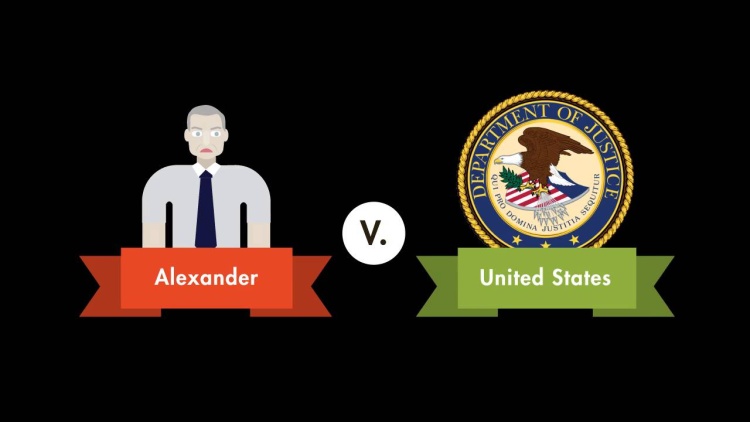Alexander v. United States
United States Supreme Court
509 U.S. 544 (1993)
- Written by Megan Petersen, JD
Facts
Alexander (defendant) was in the adult entertainment business for over thirty years. He worked with pornographic magazines and sexual paraphernalia, sexually explicit movies, and sold and rented sexually explicit videotapes. He received shipments of these materials at a warehouse in Minneapolis, Minnesota, where they were wrapped in plastic, priced, and boxed. Alexander then sold his products through thirteen retail stores in several different Minnesota cities, generating millions of dollars in annual revenues. Alexander was convicted in a full criminal trial in district court of seventeen obscenity counts and three counts of violating the Racketeer Influenced and Corrupt Organizations Act (RICO). The obscenity convictions and three RICO convictions were based on the jury’s findings that four magazines and three videotapes sold at several of Alexander’s stores were obscene. Alexander was sentenced to six years in prison and fined over $100,000. Additionally, the district court ordered Alexander to forfeit to the United States government (plaintiff) certain assets that were directly related to his racketeering activity as punishment for his RICO violations. The court ultimately ordered Alexander to forfeit his wholesale and retail businesses (including all the assets of those businesses) and almost $9 million acquired through racketeering activity. The government decided that it would be better to destroy the forfeited expressive materials than sell them to members of the public. Alexander argued that this forfeiture violated the First and Eighth Amendments to the Constitution. The court of appeals affirmed the district court’s order, and the United States Supreme Court granted certiorari.
Rule of Law
Issue
Holding and Reasoning (Rehnquist, C.J.)
Dissent (Kennedy, J.)
What to do next…
Here's why 907,000 law students have relied on our case briefs:
- Written by law professors and practitioners, not other law students. 47,100 briefs, keyed to 996 casebooks. Top-notch customer support.
- The right amount of information, includes the facts, issues, rule of law, holding and reasoning, and any concurrences and dissents.
- Access in your classes, works on your mobile and tablet. Massive library of related video lessons and high quality multiple-choice questions.
- Easy to use, uniform format for every case brief. Written in plain English, not in legalese. Our briefs summarize and simplify; they don’t just repeat the court’s language.





